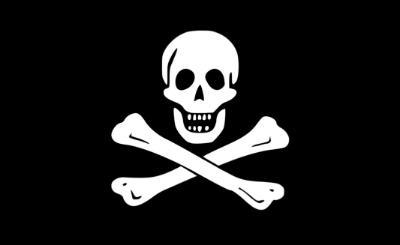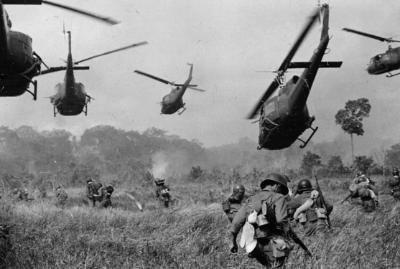archive
Not-to-miss Fall 2016 Courses!
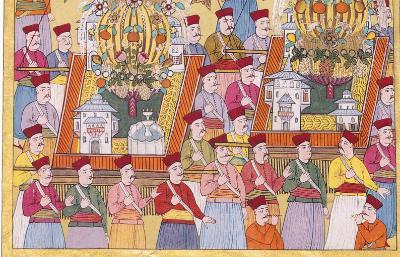
HIST 300C-001: The Ottoman Empire
Professor Edin Hajdarpasic
M, W: 4:15 PM - 5:30 PM (LSC)
ehajdarpasic@luc.edu
The Ottoman Empire was one of the largest and longest-lasting empires in world history, stretching across the Balkans, the Middle East, and North Africa since the 1500s. Its fascinating history, from its beginnings in medieval Anatolia to its violent disintegration during WWI, has been the subject of much debate. This course will explore the political and cultural history of the Ottoman Empire, focusing especially on the Balkans and the modern period (from the empire’s zenith to its disintegration). Themes will include: imperial politics, everyday life, the rise of nationalism, practices of inclusion and exclusion (along religious, gender, class, and ethnic lines), relations between the Ottoman Empire and Europe, especially in the Balkans.
HIST 300D-003: Pirates and Sailors in the Revolutionary Atlantic
Professor John Donoghue
Tu, Th: 2:30PM - 3:45PM (LSC)
jdonoghue@luc.edu
Who was the real Captain Morgan and why does he matter in history? Why did sailors become pirates? What was like life for those who sailed under the Jolly Roger? Why did they drink themselves into oblivion when they weren’t pillaging ships or the port cities of the Caribbean? For the sailors who did not become pirates, what compelled them to lead “liberty mobs” around the Atlantic world during the age of the American Revolution? Finally, what can the stories of pirates and sailors tell us about the histories of empires, the transatlantic slave trade, and the rise of global capitalism? To answer these questions and many more, this course will explore the lives and times of mariners from the days of Queen Elizabeth to the War of 1812. In the process, students will discover that Hollywood can never match the real history of pirates and sailors for drama, adventure, and lasting historical legacies.
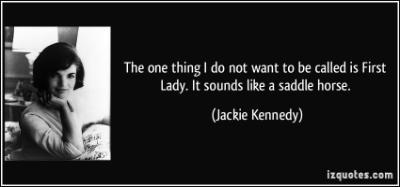
HIST 300D-004: Races to the White House
Professor Elizabeth Shermer
Tu, Th: 4:15PM - 5:15PM (LSC)
eshermer@luc.edu
Just what does the president do? And how exactly do Americans go about picking a new one? This course aims to cut through the confusion, acrimony, and excitement of the 2016 race for the White House in order to show how the president’s election, job, power, and mystique has changed dramatically over the course of American history. But this course will not be a chronological march from George Washington to Barack Obama but a thematic exploration of the topics shaping the modern presidency. For example, students will delve into the long origins of the modern primary and party system, the fierce debates about the Electoral College’s continued importance, the controversies over executive branch bureaucracies’ autonomy, the media’s importance to how Americans perceive their candidates, the first families’ shifting importance to voters, and the citizenry’s decades-old expectation for immediate change. This course accordingly aims to give students a deeper understanding of American political history as well as awareness of how that past has shaped the contemporary White House and the race to it. (Formerly titled Presidential Power and Politics.)
HIST 300D-005: LGBT History in the United States
Professor Joseph Lapsley
M, W, F: 12:35 PM - 1:25 PM (LSC)
jlapsle@luc.edu
HIST 300D-01W: Italian-American Culture in Historical Perspective
Professor Dominic Candeloro
W: 4:15 PM - 6:45 PM (LSC)
dcandeloro@luc.edu
This class traces the story of one of the largest European immigrant groups in the United States with particular attention to the literary, theatrical, artistic, folkloric, and popular culture elements of the Italian American experience. In addition to reading the historic narrative, students will focus on classic and contemporary novels and the films, music, newspapers, magazines, and cultural institutes that have shaped the self identity and public perception of Italians in this country. Current Italian American culture makers from the US and Italy will visit the class in person and via Skype. Students will screen and review feature films and documentaries in class and online. Students will master the narrative history, develop analytic skills in reviewing film and literature in historic context and develop a sense of the cultural dynamic that places Italian ethnicity in American culture and simultaneously compares the Italian experience with that of other ethnics.
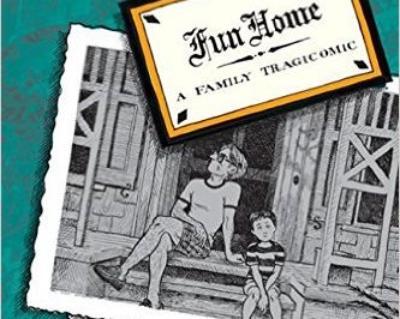
HIST 300D-02W: Autobiography and Memoir in Recent American History
Professor Elliott Gorn
Tu: 4:15 - 6:45 PM (LSC)
egorn@luc.edu
Autobiography and Memoir in Recent American History is a writing intensive class. The goal is to think about personal narratives as sources for understanding history, how the individual finds him/herself in the past. We also try to let singular human voices articulate our national diversity. In previous semesters, we've read works by Chinese sojourners, Alabama sharecroppers, Irish immigrants, factory workers, and graphic novelists. We read a new memoir every week and work our way through the late twentieth century. Assignments include two short papers and a term paper.
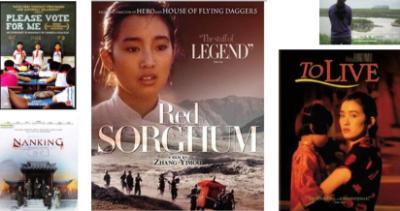
HIST 300E-200: Modern Chinese History Through Film
Professor Elena Valussi
M: 1:40 PM - 4:10 PM (WTC)
evalussi@luc.edu
Learn about Chinese Modern History at the movies! War, passion, intrigue, love, death... all of this and more will be the topic of Chinese Modern History through Film. In this course, we will discuss momentous changes in Chinese Modern and Contemporary History, from the fall of the Qing dynasty, through WW2, the civil war, the communist era, and contemporary capitalist society through the lens of movies and documentaries. We will approach historical and contemporary topics from the point of view of filmmakers and documentarists and we will use historical documents in conjunction with the films so students can judge their accuracy and learn how to approach historical films critically.
HIST 304-009: The Holocaust and Twentieth Century Genocide
Professor Elliot Lefkovitz
Tu, Th: 2:30 PM - 3:45 PM (LSC)
elefkov@luc.edu
HIST 308-001: History of Rome to Constantine
Professor Leslie Dossey
M, W, F: 9:20 AM-10:10 AM (LSC)
ldossey@luc.edu
HIST 313-01W: Modern Middle East
Professor Zouhair Ghazzal
M, W, F: 11:30 AM - 12:20 PM (LSC)
zghazza@luc.edu
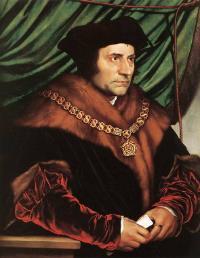
HIST 315-001: The Reformation
Professor John McManamon, S.J.
M, W, F: 10:25 AM - 11:15 AM (LSC)
jmcmana@luc.edu
During a Surtz Lecture at Loyola, Dr. Jaroslav Pelikan, distinguished historian of Christian theology, observed that Catholics need to know why the Reformation did happen and non-Catholics need to know why it could happen. Sample both! The first generation of the Reformation featured, among others: the Medici Popes, Gasparo Contarini, Ignatius Loyola, Martin Luther, John Calvin, Thomas More, Erasmus, Henry VIII, Charles V, Francis I, Michelangelo, Raphael, Albrecht Dürer—and that’s just the short list.
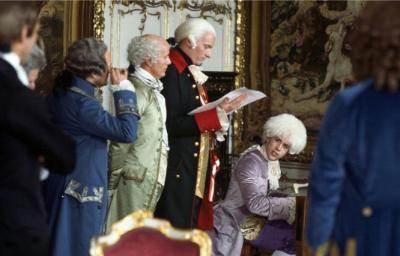
HIST 317-001: The Age of Absolutism and Enlightenment
Professor Marek Suszko
Tu, Th: 1 PM to 2:15 PM (LSC)
msuszko@luc.edu
This course covers the period that leads directly into the French Revolution and serves as a survey of the social, economic, and cultural role of Europe in the world of the 17th and 18th centuries. We will discuss the nature of classical absolutism illustrated by the reign of Louis XIV of France, the history of the Netherlands as the leading economic power of the day, the origin and evolution of Prussia, Austria, and Russia. We will bring examples of enlightened reform proposals in Poland and other European states and evaluate various attempts to implement them in practice.
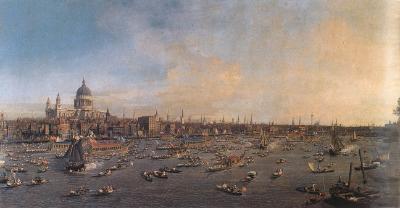
HIST 319-001: London: Life and Culture, 1550-1715
Professor Robert Bucholz
M, W: 4:15 PM - 6:45 PM (LSC)
rbuchol@luc.edu
This course is an interdisciplinary introduction to the history of London during that period when (it will be argued) the metropolis did more than any other place on earth to invent modernity. Through lectures, classroom discussion and student papers we will assess the accuracy of that assertion and the nature of London’s contribution in politics, society and culture. Over the course of the semester we will confront the best recent work in urban history; accounts by contemporary Londoners and tourists; and fictional works in which the city figures. These sources will expose us to the full range of London life, from the splendid galleries of Whitehall and St. James’s to the damp and sooty alleyways of the East End. Along the way we shall brave the dangers of plague and fire; witness the diverse spectacles of the Lord Mayor’s Pageant and the hangings at Tyburn; and take refreshment in the city’s pleasure-gardens, coffee-houses and taverns. So, in the words of a famous phrase, “Let’s to London - for there’s variety.”
-400x300.jpg)
HIST 321A-001: Germany in the 19th Century
Professor David Dennis
Tu, Th: 11:30 AM - 12:45 PM (LSC)
ddennis@luc.edu
This course will investigate major themes of nineteenth-century German history. Against the background of political and social developments such as the French Revolution, the Napoleonic Wars, the Restoration, the Revolutions of 1848, the unification of Germany, the German Empire under Bismarck and Wilhelm II, and events leading to the First World War, we will carefully consider responses to these issues by leaders in German cultural life.
Using literary texts—as well as visual arts and music—we will investigate intellectual currents under the following headings: Enlightenment, Storm and Stress, Romanticism, Young Germany vs. Biedermeier, Socialism & Realism, Unification, Volkish Ideology, “Nihilism,” Expressionism, and Wilhelmine Culture. Topics will include works by Lessing, Goethe, Heine, Marx, Wagner, Nietzsche,Thomas Mann, and Heinrich Mann. Music will include works of Haydn, Mozart, Beethoven, Schubert,Schumann, Wagner, Brahms, Strauss, Mahler, and Schoenberg.
In addition, this class will involve independent study of online lectures and course materials (allowing you to go through them on your own time, at your own pace) , combined with in class discussion of these materials. As a result this “blended” course constitute a rich synthesis of learning methods: full video lectures and, essentially, a weekly "honors" discussion section with the professor. This has proven to be an exciting and effective model for integrating online and in-class teaching.
HIST 340-01W: Russia Pre-1917: Empire Building
Professor Michael Khodarkovsky
Tu, Th: 10 AM - 11:15 AM (LSC)
mkhodar@luc.edu
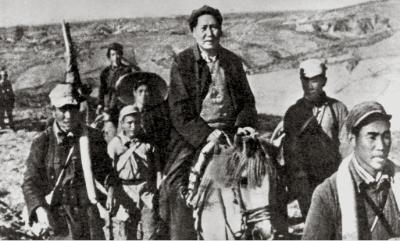
HIST 345-01W: Reform and Revolution in China, 1800-1949
Professor Mark Allee
Tu, Th: 1 PM - 2:15 PM (LSC)
mallee@luc.edu
The “domestic disorder and foreign calamities” of the nineteenth and early twentieth centuries prompted increasing anxiety and distress in China. All efforts at reform appeared ineffective or inadequate — it seemed only revolution could save China. This course explores the interplay of domestic disorder (excessive population, rural and urban immiseration, institutional inertia, rebellion) and foreign calamities (the opium trade, wars, unequal treaties, invasion and occupation) and the Chinese responses (increasingly radical reform movements, military coup,cultural revolution, anti-Japanese resistance, communist revolution).
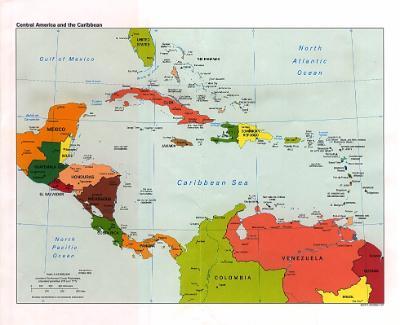
HIST 356-001: The Caribbean and Central America from Colonial to Modern Times
Professor Victor Padilla
M,W,F: 2:45 PM - 3:35 PM (LSC)
vpadilla@luc.edu
This course examines the Caribbean and Central America from European conquest and colonization to the present day. Conquest, pirates, superpower rivalries, wars for independence, slavery, slave uprisings, revolutions, covert operations, tourism, and drug smuggling. These are some of the issue we will examine in this course. The course will move from regional themes to specific countries (Jamaica, Haiti, Guatemala, Puerto Rico, and Nicaragua will be examined).
HIST 380-01W: Islam in the African-American Experience
Professor Kim Searcy
Tu, Th: 11:30 AM - 12:45 PM (LSC)
ksearcy@luc.edu
HIST 386-001: American Urban History
Professor Timothy Gilfoyle
M: 2:45 PM - 5:15 PM (LSC)
tgilfoy@luc.edu
HIST 389-001: The Vietnam War
Professor Theodore Karamanski
Tu, Th: 1 PM - 2:15 PM
Tkarama@luc.edu
Before the debacle in Iraq, Vietnam was regarded as the greatest foreign policy failure in American history. Today the war still provides important lessons for citizens and policymakers about foreign intervention, unconventional war tactics, and the limits of anti-war activism. This course offers a comprehensive examination of the Vietnam War era from the tumultuous home front to the rice patty battlefields, to the tragic oval office policy debates. Reading will include memoirs by policy makers, military personnel, and Vietnamese civilians. The course will also review the unintended side effects of American involvement in Indochina, including the Cambodian genocide.
Outcome: Students will understand the ancient origins of the Vietnamese nation, the rise and fall of the French colonial regime, the role of Vietnam in the Cold War, the peace movement, the political and cultural impact of the war on America, the success and failures of the United States military, the impact of the war on the Indo-China region, and the memory of the war in American culture.

